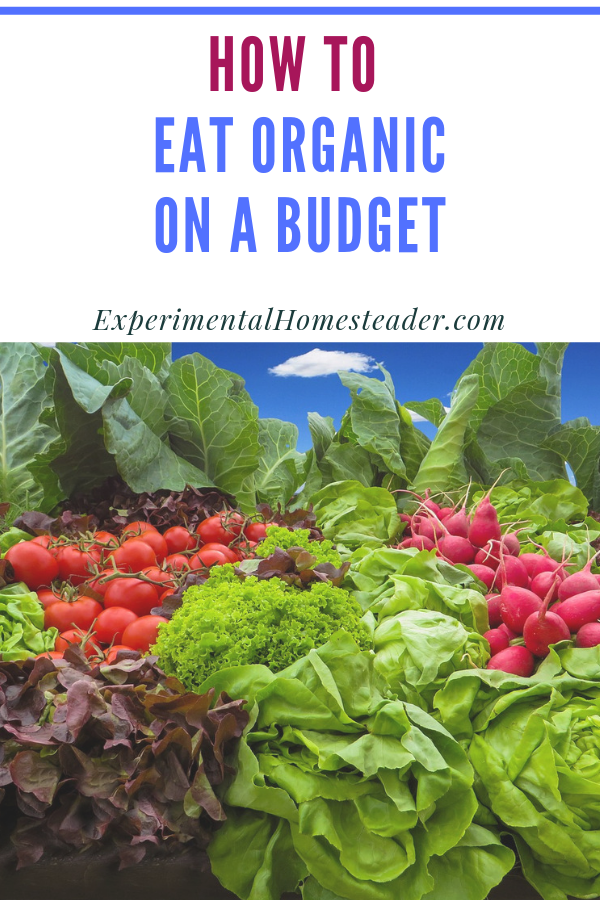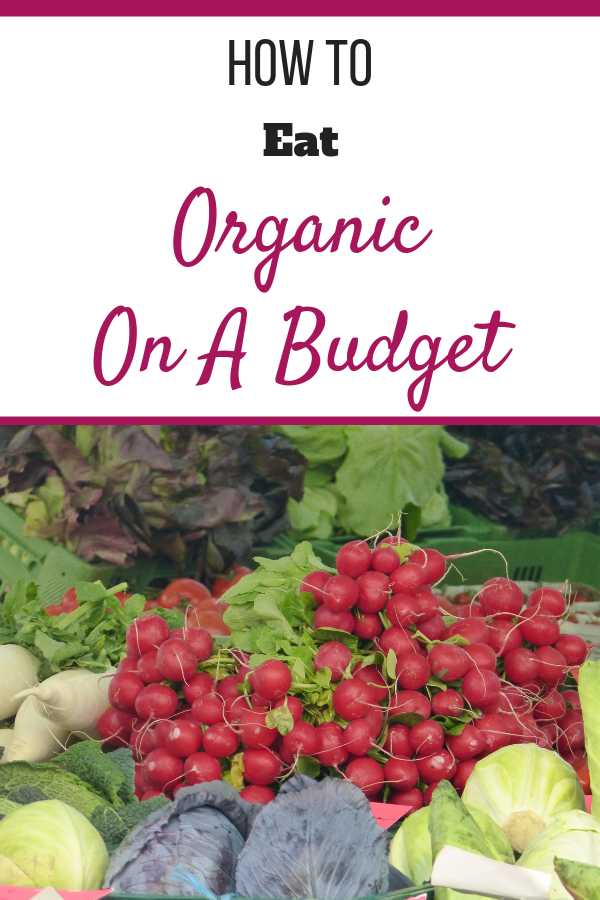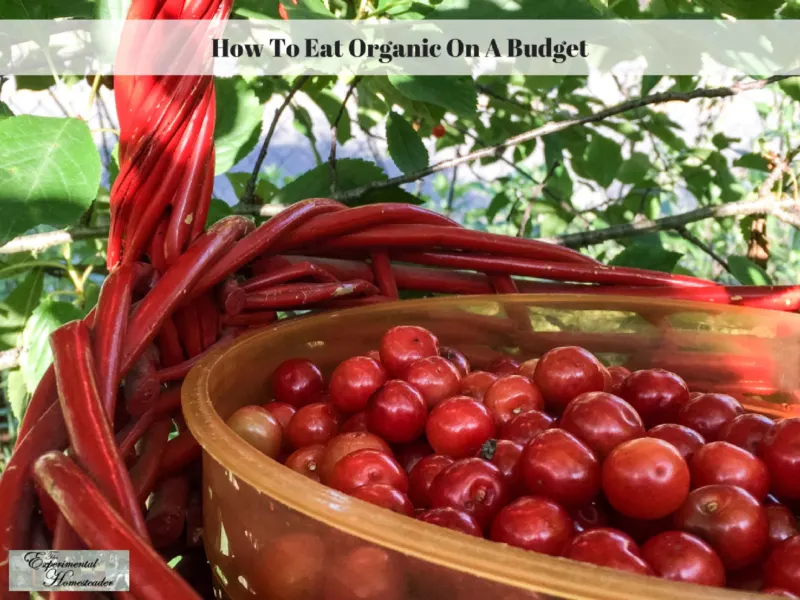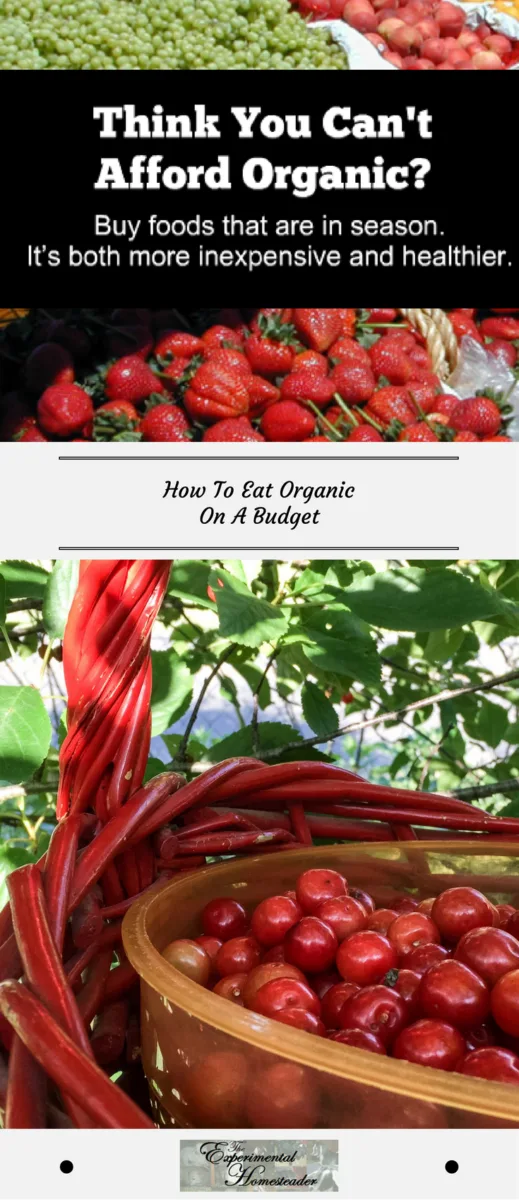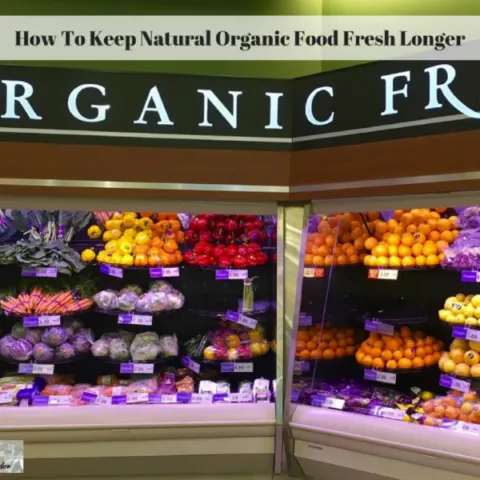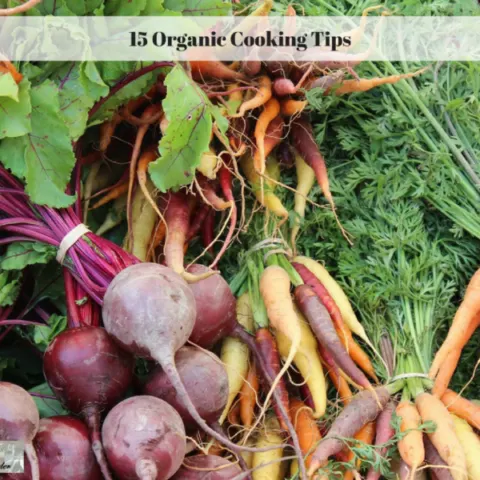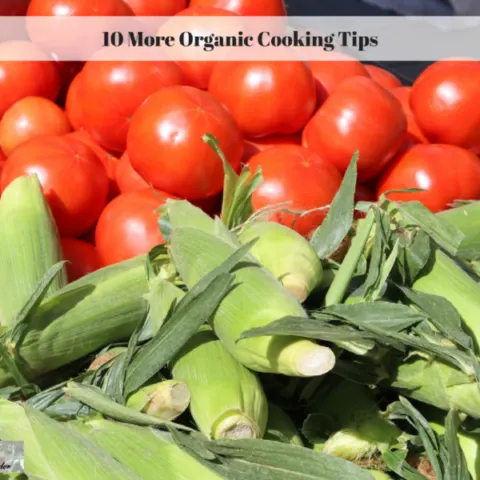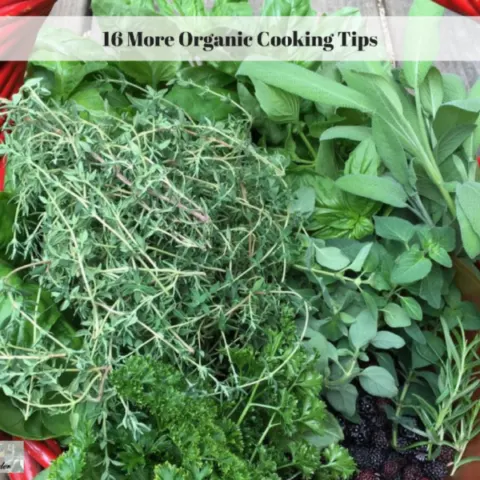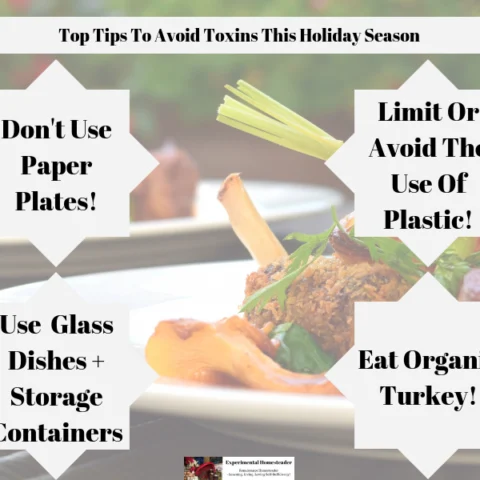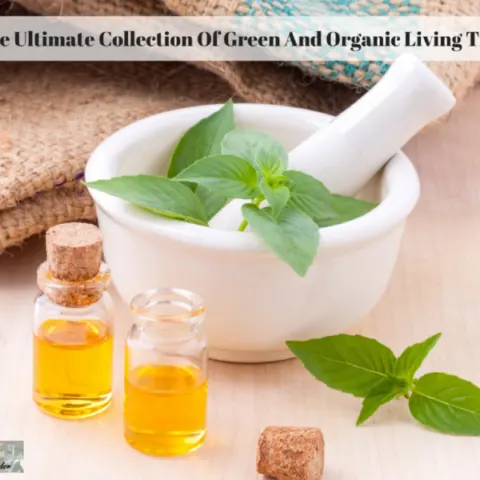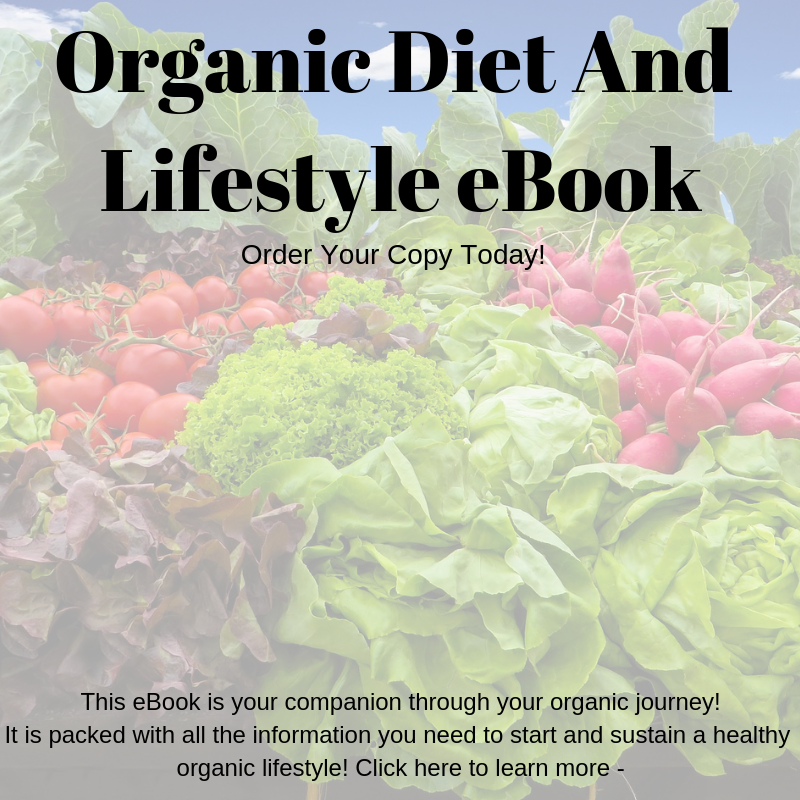You can learn how to eat organic on a budget.
Eating organic food might seem out of reach for some people, especially those with limited income, however the good news is eating organic food does not have to be expensive!
Here are 10 tips to help you start eating organic food on a budget - even if you have a large family.
Grow Your Own Organic Fruits, Vegetables And Herbs
Small gardens or even window boxes can produce an abundance of food - everything from container sized vegetables to simple herbs.
By growing your own, you have complete control over the growing process and can ensure there are no pesticides or chemical fertilizers involved in the production of the food you intend to eat.
Depending on the size of your garden and what you choose to plant, you could have a ready supply of fresh fruit, vegetables or herbs, which will reduce your shopping bill.
Cook With Fresh Organic Produce And Preserve The Excess
Fresh organic foods are always the best because they are highest in nutritional value, but fresh produce doesn't last very long.
The simple solution is to cook in bulk by doubling or tripling the recipe and then can or freeze the rest.
Another option for preserving fresh fruits and vegetables is to dehydrate them.
In time, you will build up a decent supply of organic food that simply needs to be heated up or rehydrated.
Buy Organic Food That Is In Season
Instead of buying whatever you want when you go to the grocery store, focus on what is in season.
Purchasing what is in season ensures the produce hasn't travelled halfway across the world.
The less travel the food has to do, the cheaper it will be and the more nutritional value it should have.
As fresh fruits and vegetables age, they do lose nutritional value, so buy local whenever you can.
In season produce should be quite abundant so you should be able to get a really good price on it and then preserve some of it.
Rethink Supermarkets
Supermarkets can be atrocious for organic food, with increased prices and restricted quantity of foods to choose from.
To ensure you get the best deal, search the supermarkets in your area or even go online to find their prices for different items.
You are likely to get the best combination when you purchase some items from the supermarket, and some from your local organic shop or farmers market.
Also consider purchasing from small organic farms in your area.
Although supermarkets are increasing their range of organic food and you may find you are able to get most items from supermarket relatively cheaply you still might want to buy locally to help the small farmer in your area.
Make Your Own Groceries And Beauty Products
Processed convenience food and beauty products are more expensive, particularly when purchasing the organic version.
This can prevent many people from going organic, as it is seemingly costly.
However, with some simple ingredients and organization, it is possible to make your own versions of your favorite food and beauty products.
Look for certified organic ingredients or again, grow the ingredients yourself.
Be Organized
Being organized is the key to living on a budget, and organic living is no different.
While convenience foods are cheap and easy, they are rarely organic although this is beginning to change.
To make sticking to a budget easier, plan your meals for the week ahead and figure out what you need to prepare them.
Keeping ingredients on hand and organized is the key to prevent purchasing more than you actually need.
Additionally, plan when you will need fast food and ensure you have sufficient leftovers in the freezer that you can just heat up.
One year I made a bunch of beef stew, then canned it.
That canned stew ended up being a quick and easy meal for those nights when we were too tired to cook.
Know The Clean Foods
Not all foods are subjected to the same amount of pesticides and harmful chemicals.
Knowing the differences and which ones are, will ensure you focus your pennies on those that must be bought organic.
If you can only afford to purchase some organic fruits and vegetables, prioritize apples, celery, peppers, grapes, and spinach.
These have the highest exposure to pesticides and therefore should always be bought organic.
In contrast, foods such as onions, pineapple, cabbage, and sweetcorn are least likely to have been exposed to pesticides.
You could justify not buying organic versions of these foods.
Also keep in mind to look for GMO-free foods.
Corn that is not organic is likely GMO - and that means it has genetically modified organisms incorporated into the DNA of the seed.
Regardless of what they say, I personally do not want to eat corn that is resistant to pesticides.
Plant roots do take up whatever is in the ground and the roots transfer what they take up to the plant.
I believe edible plants grown in soils where chemicals of any kind are used also contain those chemicals.
Now it might be in trace amounts but I do not want to chance it.
Reduce Consumption Of Meats And Cheeses
Conventional meat and cheese is usually expensive.
Organic meat and cheese is no exception but if you keep an eye out you can find it on sale - and sometimes it is only a few pennies to maybe a dollar more than the conventional varieties.
Buying organic meet ensures you are purchasing high quality meat that is subjected to high welfare standards.
By reducing the amount of meat and cheese you eat, you will keep the cost down.
One easy way to do this is to buy meat in pound packages.
A pound of meat is a lot and you can learn to eat smaller amounts of meat or use it in recipes that help stretch it.
Buy In Organic Foods In Bulk
Purchasing anything in bulk is always cheaper than buying small portions.
You need adequate storage for the bulk food you buy, but it will be worth it.
For buying in bulk, focus on staple ingredients such as pasta, grains, fruits and vegetables.
These keep for a long time and ensure you are able to eat organically on a budget especially if you cook from scratch.
Reduce Food Waste
Instead of putting food waste in recycling bins, or worse, throwing it away, put it on your compost pile - or if you raise livestock, feed it to them.
Now there are some foods such as meat and dairy you don't want to put on your compost pile or even feed to your livestock.
Kitchen waste acts as a fertilizer, meaning you will spend less money on organic fertilizer products, and ensures all food is used in some way or another.
Simply put, living an organic lifestyle comes down to learning some simple organic living tips that help you make the change gradually and do it on a budget that you can afford.
One last tip is to keep an eye out for coupons for organic items. Often these are sent via email from the companies who newsletters you sign up for, so if you know there are organic companies you like, sign up for the newsletter.
Also keep an eye out for sales and stock up.
Organic Living Tips - Food
How To Keep Natural Organic Food Fresher Longer
Natural organic food is healthier for you however figuring out how to keep produce fresh when life happens is tricky. Check out these 5 food storage tips.
15 Organic Cooking Tips
These 15 organic cooking tips show you how to live the organic lifestyle. It is possible to find ways to start buying organic food on a budget.
10 More Organic Cooking Tips
These 10 organic cooking tips will help you save money and eat better. Learn how affordable organic food is and start living the organic lifestyle today.
16 More Organic Cooking Tips
Check out these 16 organic cooking tips and learn about buying organic food on a budget. It is possible to find affordable organic food.
Top Tips To Avoid Toxins This Holiday Season
Learn how to avoid toxins this holiday season with these tips from Stewart Lonky, MD. Every tip is easy to follow and something you can do!
The Ultimate Collection Of Green And Organic Living Tips
Check out these organic lifestyle articles for organic living tips you can start using in your life today. There is no better time than now to go organic!
In my new eBook Organic Diet And Lifestyle you will learn how to avoid chemicals in both the foods you eat and the products you use as well as how to protect your family from the harmful effects of chemical exposure plus so much more!
If you are ready to get started on the path to an organic lifestyle or are already there and just want to know what else you can do, be sure to check out this detailed manual!


